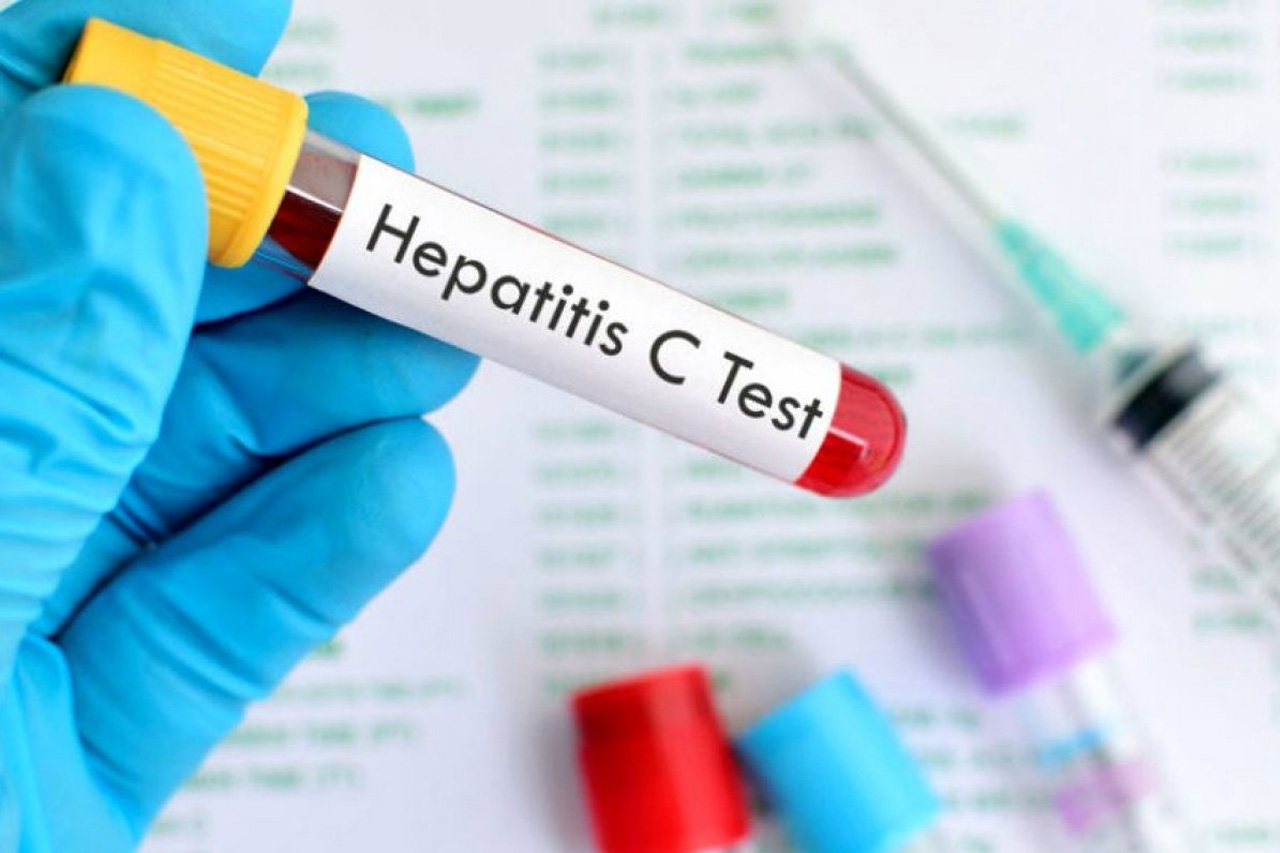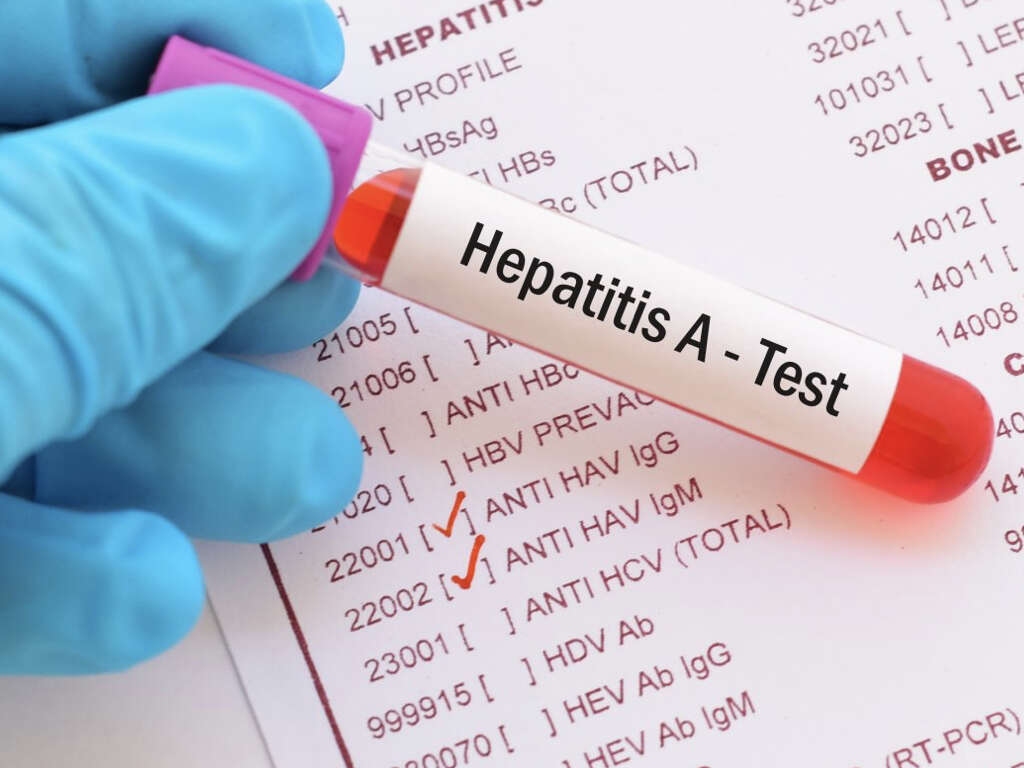Caring for your liver is, you know, a really big deal for your overall health. This vital organ works tirelessly, filtering out bad stuff and keeping your body running smoothly. But, you see, there are tiny invaders out there that can cause trouble for it. One such tiny troublemaker is the hep a virus, which can make your liver quite unwell.
This particular virus, often called hep a, causes a liver infection that is, in a way, very easy to catch. Some people might only feel a little sick for a few weeks, which is pretty mild. Yet, for others, the illness can be more serious, lasting longer and causing more discomfort, so it's good to be aware.
Knowing about the hep a virus helps you protect yourself and the people around you. It's about understanding what it is, how it spreads, and what you can do to stay healthy. This information, you know, can make a real difference in keeping your liver safe and sound.
Table of Contents
- What Exactly is the Hep A Virus?
- How the Hep A Virus Spreads
- Recognizing Signs of the Hep A Virus
- Protecting Yourself from the Hep A Virus
- When the Hep A Virus Strikes: Recovery and Care
- Common Questions About the Hep A Virus
What Exactly is the Hep A Virus?
The hep a virus is, essentially, a tiny germ that causes a specific kind of liver infection. Medical experts call this condition hepatitis A. It's a contagious illness, meaning it passes easily from one person to another, which is a key point to remember.
This virus, as a matter of fact, is one of several types of hepatitis viruses. These different viruses all have one thing in common: they cause swelling and soreness in your liver. The liver, you know, is a very important organ that helps your body in many ways.
When the hep a virus gets into your system, it starts to affect your liver's ability to work correctly. This can lead to various symptoms. Most people, as I was saying, recover completely, but it can be quite uncomfortable while it lasts.
Unlike some other types of hepatitis, the hep a virus usually causes a short-term illness. It doesn't typically lead to long-lasting liver problems, which is good news. Still, it can be very disruptive to daily life for a few weeks or even months, so that's something to think about.
How the Hep A Virus Spreads
The hep a virus spreads, basically, when someone accidentally swallows tiny bits of stool from an infected person. This might sound a bit strange, but it happens more often than you think. It's, you know, usually through contaminated food or water.
For example, someone with the virus might not wash their hands well after using the restroom. Then, they might touch food or objects. If another person touches those things and then puts their hands in their mouth, they could get infected. This is, you know, a very common way it spreads.
Eating food prepared by someone with the virus is a common way to get it. This is especially true if the food isn't cooked after handling, like salads or sandwiches. Water, too, can become contaminated if it's not treated properly, which is a serious concern in some places.
Close personal contact can also spread the virus. This includes, for instance, sexual contact or living with someone who has the infection. Sharing needles for drug use is another way, though less common for hep A compared to other hepatitis types, but it's still a possibility.
It's important to remember that the virus can live on surfaces for a while. So, touching things like doorknobs or shared items after an infected person can, you know, be a risk. This is why hand washing is so very important.
Recognizing Signs of the Hep A Virus
When someone gets the hep a virus, symptoms don't always show up right away. There's a period, usually a few weeks, before you might notice anything. This makes it, you know, a bit tricky to track.
Early Indicators
The first signs of the hep a virus can often feel like the flu. You might feel tired, which is a common complaint. There could be a low fever, too, or a general feeling of being unwell. These early signs, you know, are pretty vague.
Some people might experience sudden nausea or just not want to eat anything. Vomiting can also occur. You might also have pain in your belly, especially on the upper right side where your liver is. This discomfort, you know, can range from mild to more noticeable.
Joint pain can also be an early sign for some individuals. It's like, you know, your body is just aching all over. These symptoms, as a matter of fact, can make you feel quite miserable for a few days.
Later Developments
As the illness progresses, some distinct signs might appear. One of the most noticeable is jaundice. This is when your skin and the whites of your eyes turn a yellowish color. Your urine might also look very dark, like tea, and your stools could become light-colored, almost clay-like. These are, you know, clear indicators of liver involvement.
It's worth noting that not everyone with the hep a virus will get jaundice. Children, especially, might not show any symptoms at all, or their symptoms might be very mild. This means, you know, they could have the virus and you might not even realize it.
The illness usually lasts for a few weeks, sometimes longer. People often feel very tired during this time, and that tiredness can linger for a while even after other symptoms fade. Recovery, you know, takes time and rest.
Protecting Yourself from the Hep A Virus
The good news is that preventing the hep a virus is very possible. There are, you know, some clear steps you can take to keep yourself safe. These steps involve both personal choices and public health measures.
Vaccination is Key
The most effective way to protect yourself from the hep a virus is to get vaccinated. There is a safe and effective vaccine available. This vaccine, you know, teaches your body how to fight off the virus before you even get sick.
The hep a vaccine is usually given in two shots, several months apart. Once you've had both shots, you have long-lasting protection. Many children, as a matter of fact, get this vaccine as part of their routine immunizations, which is great.
Adults who are at higher risk should also consider getting vaccinated. This includes, for instance, people traveling to areas where hep A is common. It also includes people with certain medical conditions or those who might be exposed through their work. Talk to your doctor, you know, about whether it's right for you.
Good Hygiene Habits
Even with vaccination, good hygiene is still very important. Washing your hands thoroughly with soap and water is, you know, a simple yet powerful way to stop the spread of many germs, including the hep a virus.
Always wash your hands after using the bathroom. You should also wash them before preparing food or eating. This basic habit, you know, breaks the chain of transmission effectively.
When traveling to places where sanitation might be a concern, be extra careful about what you eat and drink. Stick to bottled water, and avoid raw or undercooked foods. Peeling fruits yourself, for instance, can also help reduce risk. These precautions, you know, can make a big difference.
When the Hep A Virus Strikes: Recovery and Care
If someone does get the hep a virus, there isn't a specific medicine to cure it. The body's own immune system fights off the virus over time. Treatment, you know, mostly focuses on managing the symptoms and helping the person feel better.
Rest is very important during recovery. The body needs energy to fight the infection. So, getting plenty of sleep and avoiding strenuous activities is, you know, highly recommended.
Staying hydrated is also key. Drinking lots of fluids helps your body recover. Eating a balanced diet, even if your appetite is low, provides the nutrients your liver needs to heal. Sometimes, you know, bland foods are easier to keep down.
It's also important to avoid alcohol during recovery. Alcohol puts extra stress on the liver, which is already working hard to heal. Certain medications, too, can be hard on the liver, so your doctor might advise against them for a while.
Most people, as I was saying, recover fully from the hep a virus within a few weeks or months. There are usually no lasting liver problems. However, it's still important to see a doctor if you suspect you have it. They can, you know, confirm the diagnosis and offer guidance for your care.
For more detailed information on viral hepatitis and liver health, you might want to visit trusted health organizations like the Centers for Disease Control and Prevention (CDC). They have, you know, a lot of helpful resources.
Common Questions About the Hep A Virus
Here are some questions people often ask about the hep a virus:
What are the first signs of hep a virus?
The very first signs of the hep a virus can feel, in a way, like a common flu. You might feel very tired, which is a big one. There could be a slight fever, too. Nausea, a general feeling of sickness, and stomach pain are also common early indicators. These symptoms, you know, usually appear a few weeks after exposure.
How do you get hep a virus?
You usually get the hep a virus by eating or drinking something contaminated with tiny amounts of an infected person's stool. This can happen, for example, if someone with the virus doesn't wash their hands well after using the bathroom and then handles food. Close personal contact with an infected person can also spread it, so it's quite contagious.
Can hep a virus be cured?
There isn't a specific medicine that cures the hep a virus directly. Your body's immune system, you know, fights off the virus on its own. Treatment focuses on supporting your body as it recovers. This means lots of rest, staying hydrated, and avoiding things that stress your liver, like alcohol. Most people, as a matter of fact, make a full recovery without lasting issues.
To learn more about keeping your body healthy and strong, including how to support your liver, you can explore other helpful resources on our site. Learn more about preventative health strategies on our site, and also find out about immune system support right here.



Detail Author:
- Name : Tremaine Lang PhD
- Username : eleanore94
- Email : mclaughlin.erwin@dare.biz
- Birthdate : 2002-04-23
- Address : 701 Cleve Burg Apt. 456 Lake Julieside, TN 91033-2320
- Phone : (320) 547-1869
- Company : Rippin-Boyle
- Job : Telemarketer
- Bio : Dolorum veniam aperiam dolores nisi nihil. Voluptates quibusdam rerum eius enim nisi consectetur laboriosam. Similique est ut in quo distinctio.
Socials
tiktok:
- url : https://tiktok.com/@howe2019
- username : howe2019
- bio : Sit et voluptatem maxime consequatur.
- followers : 5083
- following : 2406
twitter:
- url : https://twitter.com/savion_dev
- username : savion_dev
- bio : Nam impedit et accusantium sapiente unde nisi a quis. Voluptatem eos voluptatum culpa sed cum tenetur.
- followers : 497
- following : 2614
instagram:
- url : https://instagram.com/savion9127
- username : savion9127
- bio : Temporibus id commodi non sed. Sed aspernatur dolor asperiores non et et.
- followers : 899
- following : 30

